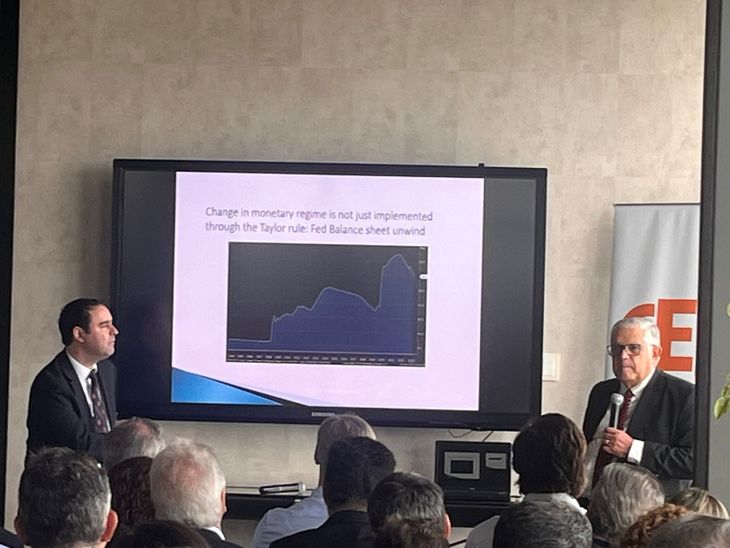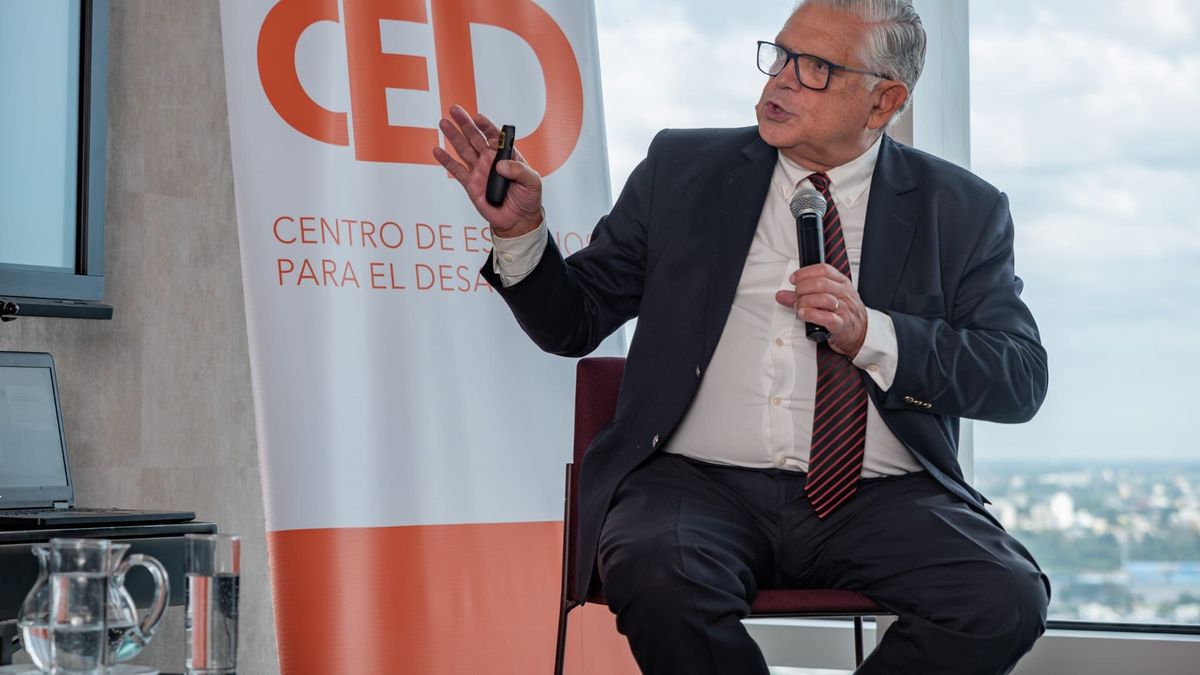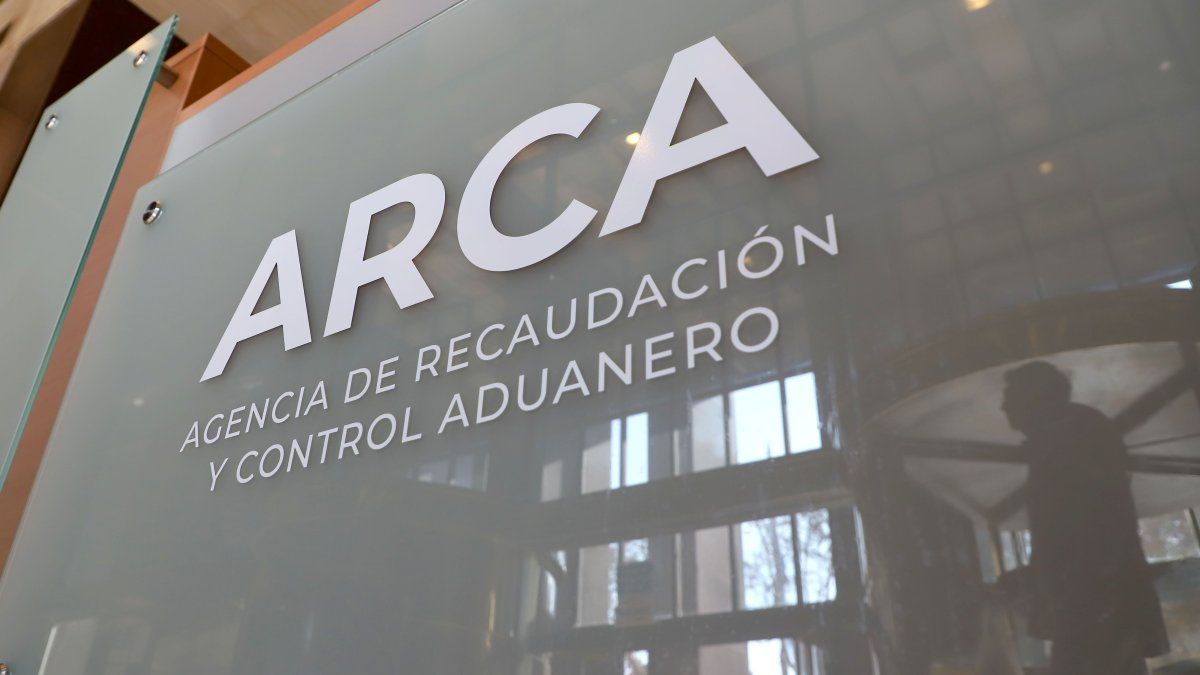“Using terms like thieves, trash, thieves, rats… How do you think the reception will be on March 1st?” questioned the deputy when referring to the opening of sessions that he must lead. Milei in it Congress.
“He has to go talk to people he referred to in these terms. And to those who need it, because our Constitution imposes and for that response the cooperation of Congress is needed. Now, you attack those who helped you in the most insolent terms possible. How difficult, isn’t it?” he asked. Lopez Murphy.
López Murphy Ced.jpeg
Analysis of the situation in Argentina
Using Power Point and in the style of a “canchero” university professor, among some jokes and political jokes, the economist began to explain what in his opinion are the big issues that define the current complex political and economic panorama of the neighboring country.
“If one has to understand Argentina, There are three fundamental things. Price of the soy, how are you doing Brazil and the interest rate of the world. “You can have the best political team, the best economic team, but if soybeans do poorly, the interest rate falls and Brazil has a crisis, there is no capacity to save you,” stated the Argentine leader.
The former Minister of Economy contextualized the current situation by taking a rather pessimistic view: “There is a delay in the payments of the commercial debt, delay in dividend payments, rebuild the net reserve, pay some of the external debt. Ultimately, we haven’t paid him for many years.”
“The previous regime did something crazy, which was to put the private sector, It forced it into a debt situation and today we are on the verge of collapse, because all our suppliers do not want to lend to the productive sector and the pace is that this will lead us to a collapse,” he concluded.
Exporters’ concern
At the time of questions from the qualified audience present, López Murphy was consulted by representatives of the Union of Exporters of Uruguay (UEU) on the mechanism that the current Argentine government has been applying to try to catch up with the debts contracted by Uruguayan exporters.
The deputy was not optimistic that the solution to the Bopreal be effective in the short term. “A bond was devised that will be settled in the next three years. Part is paid now, part next year, part later. And the idea is that we have an immense surplus of those 100,000 million, where your money is, which is now in a bond,” he observed.
And he analyzed: “The important thing is that we pay the bonus. Since there are many people who think that something can go wrong, the bonus should be worth more. Well, if the exports, If the crops work, if the weather is good and if we stop doing atrocities, we will raise the 100,000 million to pay you.”
“That is precisely a crucial problem. If we manage to persuade our people that we are going to comply, the logistics chain will not be interrupted, we will be able to continue working there. If you are going to raise that and they look at you with lost eyes, then there are no possibilities,” he stated. Lopez Murphy.
Ced, Bonilla López Murphy.jpeg

Bonilla spoke of “a correct diagnosis”
The president of the Ced, Hernán Bonilla, rated very positively for Ambit what was stated by López Murphy in the context that “Argentina It comes from a very complex situation, a long term of deterioration and in the near term a drop in per capita income, a deterioration in living conditions, an increase in poverty, of a very complex fiscal and financial situation.”
“All of this is a scenario that Argentina has had for a long time and the current government is trying to correct some of these problems. In general terms, I think the diagnosis is correct,” said Bonilla.
At the same time, it marked discrepancies with attitudes of political confrontation that the president has expressed. Milei. “I believe that confrontation with Congress, for example, is a mistake. But I think that what would be desirable would be that some policy could be reached in which we could at least discuss and achieve the consensus that Argentina needs,” said the Ced economist.
In any case, it ended with a favorable conclusion. “I think there was good news in the bilateral relationship. The issue of the dredging of the Port of Montevideo, that had been blocked for years, is a good sign. “Probably the relationship between governments and countries is better than with the previous government.”
The “good signs” stand out
For the economist María Laura Rodríguez, responsible for economic advice at the UEU, in recent times in the link “there were good signs because, for example, the process (SIRA) What had to be done to be able to sell to Argentina “It was eliminated and changed to a statistical system that is much more sophisticated.”
“On the other hand, mechanisms are proposed for debt payment. That this has not been achieved because it is a complex system, since they are bonds that are listed on the market at a lower value and, well, it is a whole negotiation between the Uruguayan exporter and the Argentine importer. That is another issue that must be resolved, that must be dealt with, but there is a sign of beginning to resolve things,” Rodríguez stated.
And he closed: “Everything we need from Argentina, which is for it to start growing, to start having a orderly macroeconomics, That is understood to be a process. In that process we are there, looking for how to make commerce fluid, collect outstanding debts because there are many companies that are very pressured by that outstanding debt.”
Source: Ambito




